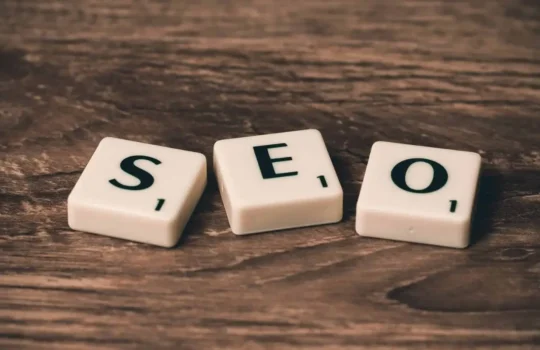In current process of constructing website, there’re a lot of elements that need to be taken into consideration. One such component is that the size of your web pages must be carefully managed. A page size can thus affect the site and the users in terms of performance and, consequently, its ranking in the search engine results pages (SERPS).
What is Page Size?
Web page size hail from the size of a file that contains all the texts, images, videos and all the other forms of media that are in the given Web page. It is usually stated in kilobytes or sometimes in megabytes on the file or documents it is associated with. Clearly, the more bytes the page has, the more time it will take to load the page on the internet explorer.
Why Does Page Size Matter for SEO?
Website page size is very important in the determination of the overall time a website can take when loading. One of the factors that severely influence the ranking of a site is the time it takes to load a page. When all the necessary resources are not loaded instantly, the probability of the dissatisfaction is high and thus a poor ranking in the websites.
Users have been reported to leave unresponsive websites within a short span of time as acquired from research studies. Indeed, even the time taken in a few seconds can greatly raise the bounce rates in a web page. This is means that if your pages are large and take a long time to load, people are likely to leave your site without viewing contents of the site.
Optimal Page Size for SEO
So what should be the optimally correct website page size for seo? There is no precise figure that will deliver the definitive one-pager; however, it is generally advised that your website’s pages should be no more than 1. 5MB.
But it is to be understood that page size is just one of the aspects of Website lays performance. Some other relevant factors include; server response time, cache time and even image optimization that translates to time it takes to load up the pages.
To optimize your page size, here are a few tips:
Minimize HTML, CSS, and JavaScript
Remove any unnecessary code and compress your files to reduce their size.
Optimize images
Optimise images through methods such as the compression and resizing of images to come up with images with lower file sizes. Refer to the usage of right file formats for images such as JPEG for photographs and PNG for graphics.
Implement lazy loading
Lazy loading is a technique that loads only the visible portion of a web page, delaying the loading of non-visible content until the user scrolls down. This can significantly improve page load speed.
Use content delivery networks (CDNs): CDNs reproduce your web site’s files across many servers globally; thereby, minimizing the distance between the user and the server and enhancing on page download rates.
Enable browser caching
Prices caching is the ability of the user to store some files locally in their device, hence will not be necessarily downloaded every time they open the website.
Consider Mobile Page Size
It is equally important to think about the page size for mobiles in this mobile first world that we live in. Mobi users usually have a limited bandwidth and less powerful devices than pc users hence the need to defend your pages for mobile devices.
Lately, Google has officially implemented the mobile-first indexing, in other words, Google primarily utilizes the mobile version of a site in the ranking factors detection process. Thus, the issue of a page loading speed on the Internet on a mobile device must be brought under control.
The global adoption of the use of various devices to access the Internet necessitates the incorporation of responsive design where the layout of the website and all the content change depending on the size of the screen the website is being accessed from. Incorrect; This can help optimize the page size for the mobile users.
FAQs
Web page encompasses all the content of a particular web page right from the information articles, images, scripts, and other related issues and therefore the term page size is a synthesis of the totality of a web page. It is important for SEO because search engine rating has the page load speed as one of the rating indicators.A smaller page size generally leads to faster loading times, which can improve user experience and SEO performance.
Currently, I was not able to find any particular sign that suggests there is an SEO recommended page size. But, it is recommended to give a size to the page as small as it can possibly be with retaining the quality of the content as well as the user friendliness of the page. Ideally, the page should not be more than three mega bytes so as to load readily.
There are several ways on how you can decrease the page size of your site; these include image optimization, CSS/JavaScript file optimization, HTML compression, and proper coding. Further, it is essential to eliminate other aspects and plugins that might increase the page size but do not enrich its value.
Reducing the page size can indeed enhance the loading times while at the same time enhancing the general use of the website, though it is not a certain way of enhancing SEO on the site automatically.
Yes, there are several that are easily accessible online to use in measuring page size such as Google PageSpeed Insights, GTmetrix, and Pingdom Website Speed Test. These tools generate specific reports referring to the page size, loading time, and recommendations.
Conclusion
Page size is an important factor to consider when optimizing your website for SEO. Keeping your page size under 1.5MB is generally recommended, but it’s also essential to focus on other aspects of website performance, such as server response time and image optimization.
By following best practices for page size optimization, including minimizing code, optimizing images, implementing lazy loading, using CDNs, and enabling browser caching, you can improve your website’s performance, user experience, and SEO rankings.
Remember to regularly monitor your website’s performance and make adjustments as needed to ensure optimal page size and overall website performance.








